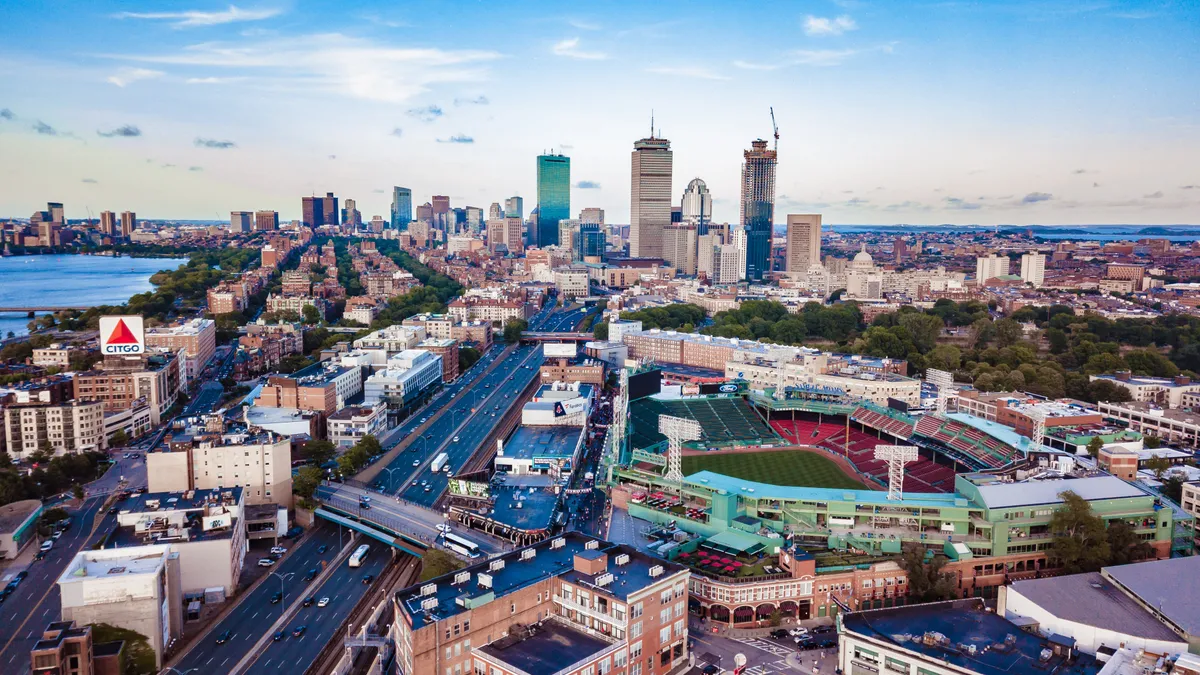Dive Brief:
- The City of Boston is seeking a partner to help design its first urban forest plan, according to a request for proposals (RFP) issued last week.
- City officials said they want to partner with a group that will "develop strategies to promote growth, longevity, and protection of Boston's urban canopy over the next 20 years," and also provide a roadmap toward expanding the city's tree canopy and understanding where that canopy is being lost.
- Potential partners will be required to support communities and neighborhoods that have been historically underserved and are disproportionately affected by climate change. Partners will also be required to work with local small and minority-owned businesses. The RFP closes to applications on Oct. 28.
Dive Insight:
As cities reckon with the impacts of climate change and the simultaneous need to keep up with their growing populations, local leaders have become increasingly concerned about the impacts on their tree canopies. Though trees can improve air quality, reduce stormwater runoff and keep temperatures down, a U.S. Department of Agriculture (USDA) Forest Service study in 2018 found that cities are losing 36 million trees a year, even as the need for urban tree canopies continues to increase.
Boston emphasized the need for its urban tree plan to prioritize communities that have been adversely impacted by climate change through higher temperatures and heat islands. The plan, which is the first of its kind in the city, is designed to "ensure every neighborhood has the resources they deserve and need," Mayor Marty Walsh said in a statement.
The effort also comes as the city requires carbon neutral design for its municipal buildings and as it plans to protect its waterfront from rising seas as part of its response to environmental issues. The city also said its planning process will be transparent and collaborative, like its Climate Ready Boston plan and others.
Mayors say there must be a continued commitment to the urban tree canopy. "Some famous urbanists said, you can tell the wealth of a street by how many trees are on the street, so I am a huge believer in adding to that tree canopy and the health effects that come with it," Cincinnati Mayor John Cranley said during a webinar hosted by Climate Mayors.
Other North American cities are wrestling with the need to address their tree canopies as well. Montreal recently undertook a study of its private trees in a section of the city, while Chicago and Los Angeles are among those to create a street tree inventory. The latter also doubled down on its commitment to its tree canopy with the creation of a chief forest officer.












